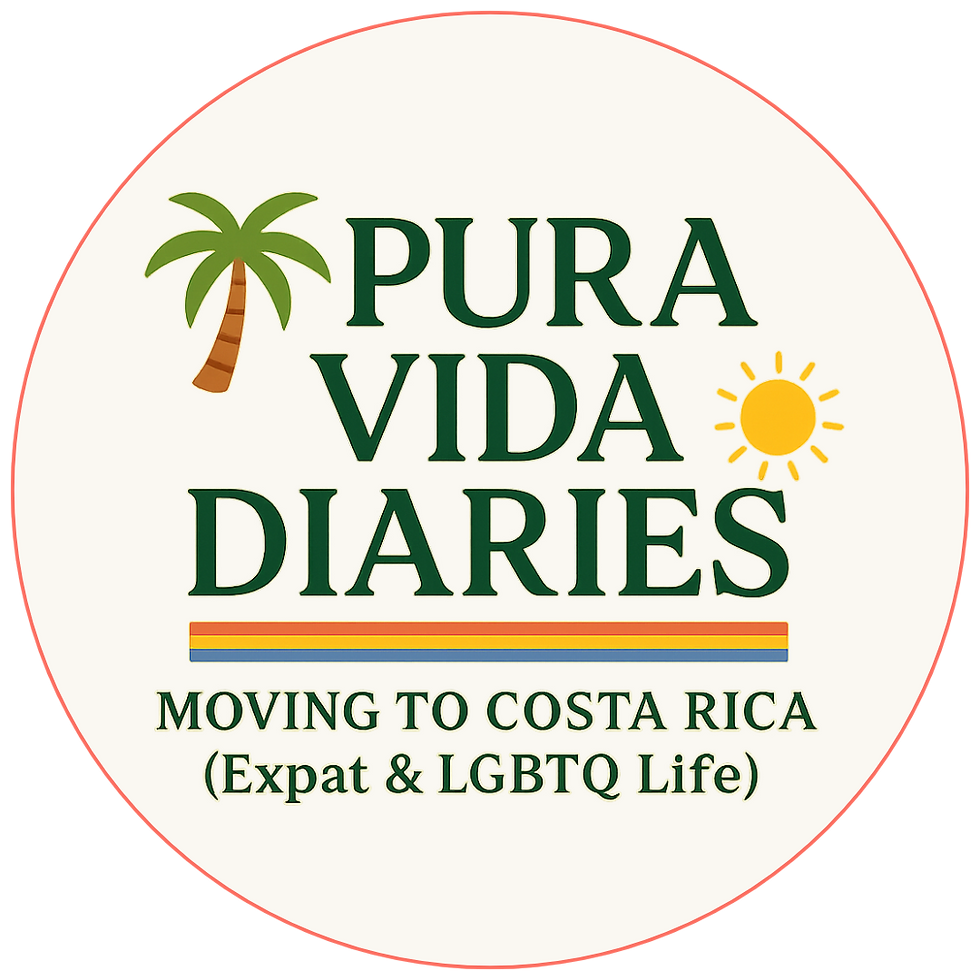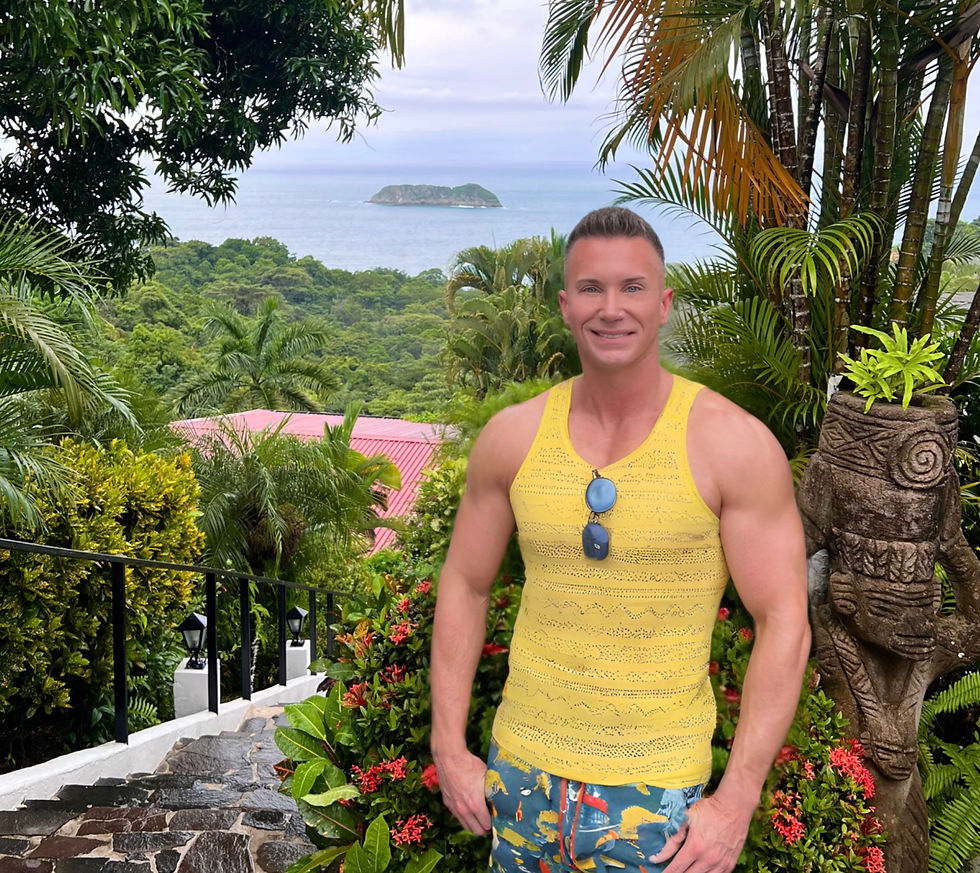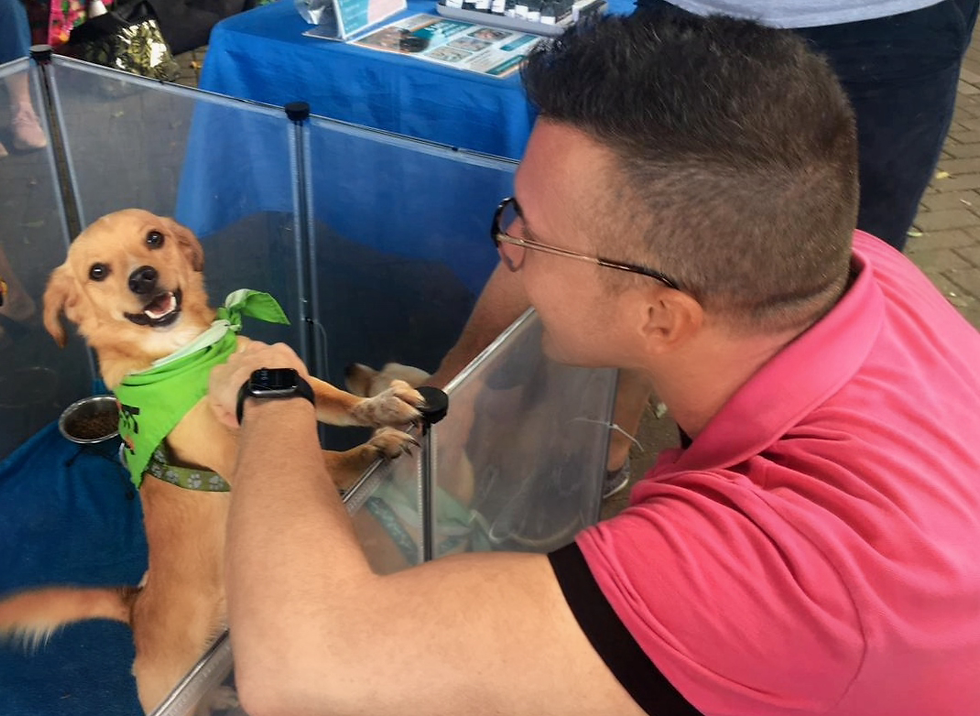Residency in Costa Rica: How to Stay Legally (Without the Border-Run Headache)
- Waymon Hudson

- Sep 3, 2025
- 5 min read
Updated: Nov 6, 2025

Immigration law here is like dating: know your options, commit to one, and bring all your paperwork and baggage to the first meeting. Ghosting won’t help.
If you’re dreaming of swapping your U.S. grind for Pura Vida, you’ll need more than a suitcase and good intentions — you’ll need to figure out how to legally stay. Here’s how to make Costa Rica residency less of a headache (and more of a commitment to being a good expat who supports the system you live in).
1. Visitor Life vs Residency Reality
U.S. citizens can stay up to 180 days on a tourist visa. Six months of sunsets and surf, then you’re out.
After that? You either:
Pack up and go home, or
Do a border run — cross into Nicaragua or Panama, spend time outside the country, then return with a fresh stamp.
Yes, border runs are a rite of passage. But if you plan to live here full-time, they’re unsustainable, unreliable, and don’t give you rights or protections.

2. Costa Rica Residency Requirements & Pathways
Here’s the real menu of long-term legal options (pick one and prepare for paperwork):
Pensionado (Retiree Visa): Proof of $1,000/month lifetime pension.
Rentista (Passive Income Visa): Proof of $2,500/month income for 2 years.
Inversionista (Investor Visa): Invest at least $150,000 in a Costa Rican business, real estate, or approved project.
Digital Nomad Visa: Prove $3,000/month income ($4,000 for families) from remote work. Valid for 1–2 years.
3. The Process & Timeline
Application to approval: Usually 6–12 months (sometimes longer).
Permanent residency: After 3 years on most temporary categories (with 180+ days per year in Costa Rica).
Citizenship: Eligible after 7 years of legal residency.
All applications require apostilled + translated documents (birth certificate, background checks, financials). Missing one piece = delays.
I HIGHLY reccommned finding an immigration attorney in Costa Rica to help. Trust me.
4. Why Becoming a Legal Resident Matters
Residency isn’t just about skipping border runs — it’s about doing the right thing.
You pay into Caja (Costa Rica’s public healthcare + social security system), which supports the same services you’ll use.
You support the local economy rather than floating on a loophole.
You gain stability, legal rights, and credibility as part of your community.
If you’re going to enjoy the pura vida life, it’s fair (and wise) to also invest in the systems that make it possible.
5. LGBTQ Residency in Costa Rica
Costa Rica recognizes same-sex marriage. That means:
Same-sex couples can apply for residency as spouses, with the same rights as straight couples.
If you marry a Costa Rican citizen or permanent resident, you qualify for residency through them.
Translation: your love story gets all the same legal protections — including residency. 🏳️🌈
6. Quick Takeaway

Residency is a commitment, just like living in paradise is.
Pick your visa category.
Gather and apostille your documents early.
Translate everything into Spanish.
Consider hiring an immigration lawyer or consultant — they’ll save you stress, time, and Aduana tears.
Do it right, and you can trade border runs for jungle runs — and build a life here that’s sustainable, legal, and community-minded.
Also check out the rest of the Pura Vida Diaries Blog Series:
Part 1: Moving to Costa Rica: Why I Chose Here Out of Anywhere in the World
Part 2: Thinking of Moving to Costa Rica? Cost of Living, Rent & Reality Check
Part 3: Residency in Costa Rica: How to Stay Legally (Without the Border-Run Headache)
Part 4: How to Be a Good Immigrant in Costa Rica (a.k.a. Don’t Be “That” Expat)
Part 6: Pets in Paradise: Bringing Your Dog or Cat to Costa Rica — and Why You Might Adopt One Here
Part 7: Culture Shock in Costa Rica: Why It’s the Best Thing That Ever Happened to Me (Pura Vida, Baby)
Part 9: Learning Spanish in Costa Rica: A Fun (and Honest) Guide for Expats Who Aren’t 22 Anymore
Part 10: Remote Work in Costa Rica: Jungle Wi-Fi, Time Zones, and the Digital Nomad Life
Part 11: Costa Rica Expat Challenges: The Hard Stuff No One Posts on Instagram
Basically? If you’ve ever Googled “Can I really move to Costa Rica?” …this series is your sign.
FAQ: Costa Rica Residency:
How long can U.S. citizens stay in Costa Rica without residency?
U.S. citizens can stay up to 180 days as tourists. After that, you must leave or do a border run. For full-time living, legal residency is required.
What are the residency requirements in Costa Rica?
Residency options include:
Pensionado: $1,000/month lifetime pension.
Rentista: $2,500/month income for 2 years or $60k deposit.
Inversionista: $150,000 investment in business or real estate.
Digital Nomad: $3,000/month income ($4,000 for families).
How long does it take to get residency in Costa Rica?
Most applications take 6–12 months. Permanent residency is possible after 3 years of temporary residency, and citizenship after 7 years.
Is Costa Rica LGBTQ-friendly for residency?
Yes. Costa Rica recognizes same-sex marriage, so LGBTQ couples can apply for residency on the same terms as straight couples.
Why should I apply for residency instead of just doing border runs?
Residency gives you stability, legal rights, and allows you to pay into Caja, Costa Rica’s healthcare and social security system — supporting the services you benefit from. It also makes you a better neighbor and community member.
💡 P.S. — this is just the beginning.
Every Wednesday I’ll be dropping a new article in my Pura Vida Diaries series. Think of it as your jungle survival (and thrival) guide.
We’re going to cover it all:
🛂 Residency + visas (aka: how not to get deported)
💸 Living expenses + budgets (yes, you can afford it — even with your avocado toast addiction)
🏥 Healthcare (Caja vs. private, and what it’s really like)
💻 Remote work realities (including jungle Wi-Fi myths)
🥑 Food, culture, & community (the farmers’ market, the friends, the pura vida)
🐕 Pets & rescues (because jungle dogs deserve love too)
🌍 How to Be a Good Immigrant (gentrification, humility, supporting locals — aka don’t be “that” expat)
Basically? If you’ve ever Googled “Can I really move to Costa Rica?” …this series is your sign.
📲 Follow Me
Want more than just the weekly blog drop? Let’s hang out everywhere:
🎥 YouTube → deep-dive videos of each blog (perfect for bingeing with coffee)
📸 Instagram → my daily life here (sunrises, dogs, jungle sweat, and a few shirtless selfies)
🎬 TikTok → the fun, fast, and slightly thirsty version of this expat adventure
👥 Facebook → where community + conversation actually happen
📰 Substack → longer reflections, essays, and behind-the-scenes of this wild queer jungle life
👉 Come along — because this isn’t just me telling you my story, it’s an invite to imagine what yours could look like too.




Comments